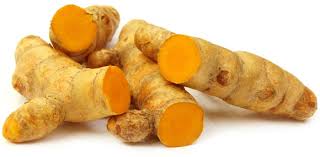Turmeric Natural Anti-Depressant.
Plant Academie
- is a rhizome and highly recommended. Rhizome from the Ancient Greek: rhízōma meaning "mass of roots", is a plant stem that sends out roots and shoots from its nodes. Rhizomes include Ginger and Galangal. Turmeric also known as Curcuma, contains powerful biologically active compounds with medicinal properties. It contains Curcumin which is a naturally derived Anti-Inflammatory which is important in fighting many degenerative and chronic health conditions like arthritis, and osteoarthritis. It is also considered that inflammation and bacterias are conditions which provide the conditions for cancer to thrive. They are carcinogenic. Turmeric is a powerful anti-carcinogenic Turmeric considerably increases the Antioxidant capacity of the body. Curcumin, found in Turmeric, improves brain health and brain function and lowers the risks of diseases of the brain.
Fore general health benefits, simply add a teaspoonful into a plant milk and shake, and drink once or twice a day. The therapeutic dose is 800gms, every day. Turmeric can be a very powerful presence in your body. If you have a significant health issue we recommend starting small, just 1 teaspoon for that day.
Turmeric as an anti-depressant - Research indicate that the effectiveness of curcumin stems from its ability to inhibit monoamine oxidase - which is what some prescription medicines do. It is an enzyme which is linked to depression if found in the brain in high levels.
Turmeric-Curcumin also raises the levels of serotonin and dopamine in the brain. These two neurotransmitters are responsible for feelings of happiness, curbing depression and increasing overall emotional well-being. It decreases anxiety.
include
……
Living Energy System.
Plant
Food
Copyright
soul-search.org Copyright 2003 - © |

 Surprisingly, Turmeric makes a great health drink with many heath benefits.
There are plenty of tea and shake recipes but it can also be taken as a very
simple and pleasant drink, which may also help with the feeling of a
satisfied appetite.
Surprisingly, Turmeric makes a great health drink with many heath benefits.
There are plenty of tea and shake recipes but it can also be taken as a very
simple and pleasant drink, which may also help with the feeling of a
satisfied appetite.

